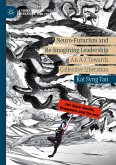This book probes the complex relationship between memory and storytelling in contemporary literature. It not only examines how memory is constantly made and remade through words and stories but also explores how literary practices and imagination are shaping new concepts of memory in the 21st century. By analyzing the selected novels - Penelope Lively's The Photograph, Tom McCarthy's Remainder, Julian Barnes' The Sense of an Ending and The Only Story, Kazuo Ishiguro's Never Let Me Go, and Felicia Yap's Yesterday - this book explores the dynamic interplay of remembering and forgetting, and redefines the relationship between fiction and memory in the 21st century.
Chia-Chieh Mavis Tseng is the director and associate professor in the Language Center at Taipei Medical University. She received her Ph.D. in Comparative Literature at Rutgers, The State University of New Jersey. Herpublications have addressed memory studies, film studies, visual culture, urban modernity, Amy Levy, Kate Chopin, Virginia Woolf, Kazuo Ishiguro, Walter Benjamin, and Jacques Tati's works. Her several research projects (2017-2023), funded by the National Science and Technology Council in Taiwan, R.O.C., focus on representations of memory in contemporary novels and films.
Dieser Download kann aus rechtlichen Gründen nur mit Rechnungsadresse in A, B, BG, CY, CZ, D, DK, EW, E, FIN, F, GR, HR, H, IRL, I, LT, L, LR, M, NL, PL, P, R, S, SLO, SK ausgeliefert werden.









